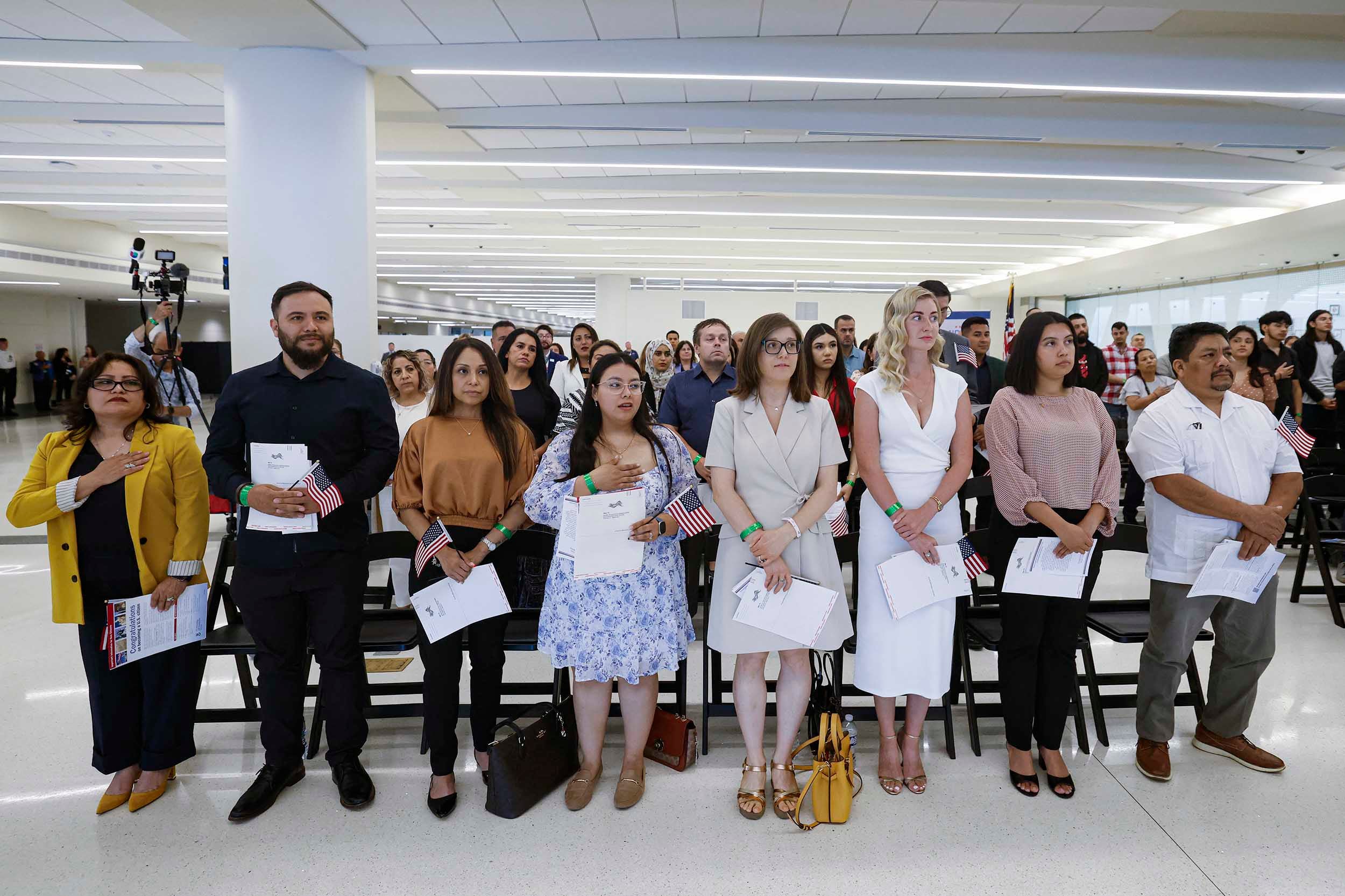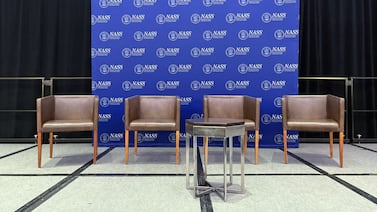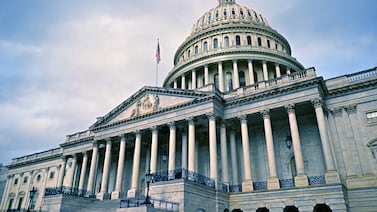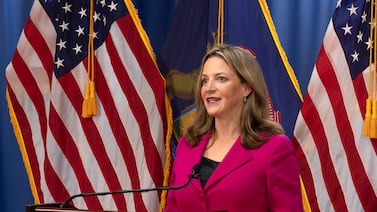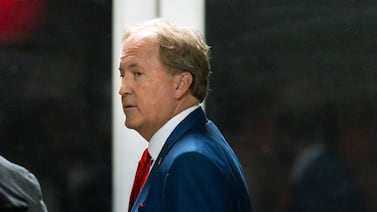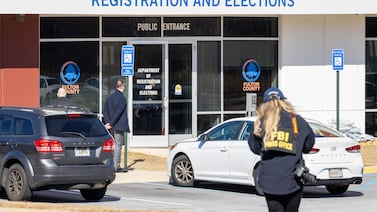Votebeat is a nonprofit news organization reporting on voting access and election administration across the U.S.
This news analysis was originally distributed in Votebeat’s free weekly newsletter. Sign up to get future editions, including the latest reporting from Votebeat bureaus and curated news from other publications, delivered to your inbox every Saturday.
In Milwaukee this week, dozens of new Americans filed into the federal courthouse to take the oath of citizenship. The scene was joyful, emotional, and for many, the culmination of years of waiting. Outside the ceremony, volunteers from the League of Women Voters of Milwaukee County stood ready with electronic tablets to register interested voters.
By the end of the second of three ceremonies that day, more than 20 people had already registered to vote — each one of them a fully documented citizen of the United States.
Linda Neubauer, who leads those efforts, has watched this scene before. “Some of them were never allowed to vote in their own home countries, so it’s a very big deal for them,” she told Alex Shur, our Wisconsin reporter. “It makes it very special for us. I get my share of hugs from new citizens.”
This is the work that League volunteers have been doing for decades: welcoming brand-new Americans into democracy by making sure they don’t leave their ceremony without the tools to vote. And here’s the important part — that hasn’t stopped.
So why do we bring this up? At the end of August, U.S. Citizenship and Immigration Services announced that from now on, only state and local election officials can register new citizens at ceremonies held in USCIS facilities. Nonpartisan volunteers, such as those from the League are out. The agency says it’s worried about the “sporadic” nature of volunteer participation and whether it can guarantee nonpartisanship. Critics say this is a solution in search of a problem — and one that could make it harder for new citizens to register.
But here’s the thing: Many naturalization ceremonies don’t happen at USCIS facilities. They happen in courthouses and are overseen by judges. That’s why the joyful scene in Milwaukee played out as usual. The new guidance simply doesn’t apply there.
It also doesn’t change much in many other places. In Arizona, for example, League members already work as deputy registrars through county election departments, so they’re operating under official authority. In Texas, the same is true, and most ceremonies are judge-led, so little changes there either.
“We’ve instructed our Leagues to continue conducting naturalization ceremonies as they always have, until an official directive changes this practice,” said Joyce LeBombard, president of the League of Women Voters of Texas.
What the new directive really does is complicate voter registration at the set of ceremonies that are directly managed by USCIS — ceremonies that often don’t have state or local election officials on hand. USCIS says voter registration applications and information “will continue to be provided by state or local election officials, or USCIS staff at the end of naturalization ceremonies.” Still, it means those new citizens won’t necessarily have the same warm experience as the ones in Wisconsin.
“By shutting out the League and other civic partners, USCIS is making it harder for new citizens to register to vote, which is yet another intimidation tactic and attack on the immigrant community,” Celina Stewart, CEO of the League of Women Voters, said in a statement. “Our democracy is stronger with the voices of new citizens.”
And that’s where the politics come in. The Trump administration has been loudly and rapidly changing immigration policies since January, each time making it a little harder for new citizens and immigrants working toward citizenship. Cutting back voter registration at naturalization ceremonies sends the message that full participation in civic life isn’t meant to be easy or welcoming.
An email from USCIS to Colorado officials, released to Votebeat by the Colorado secretary of state’s office, shows, in part, how this is playing out. In it, USCIS asked officials from the state and from Jefferson County, outside of Denver, for voter registration information to distribute to new citizens, and invited local government representatives to attend naturalization ceremonies to help register voters.
But the email said USCIS staff are “not permitted to work with the City of Denver currently due to Denver’s sanctuary city status.” USCIS has not responded to questions about this policy.
In places like Wisconsin, meanwhile, the USCIS policy makes headlines, but it doesn’t make much difference. The courthouse is still full of hugs, clipboards, and first-time voters ready to make their voices heard.
Votebeat reporters Alex Shur, Jen Fifield, and Natalia Contreras contributed reporting.
Jessica Huseman is Votebeat’s editorial director and is based in Dallas. Contact Jessica at jhuseman@votebeat.org.

